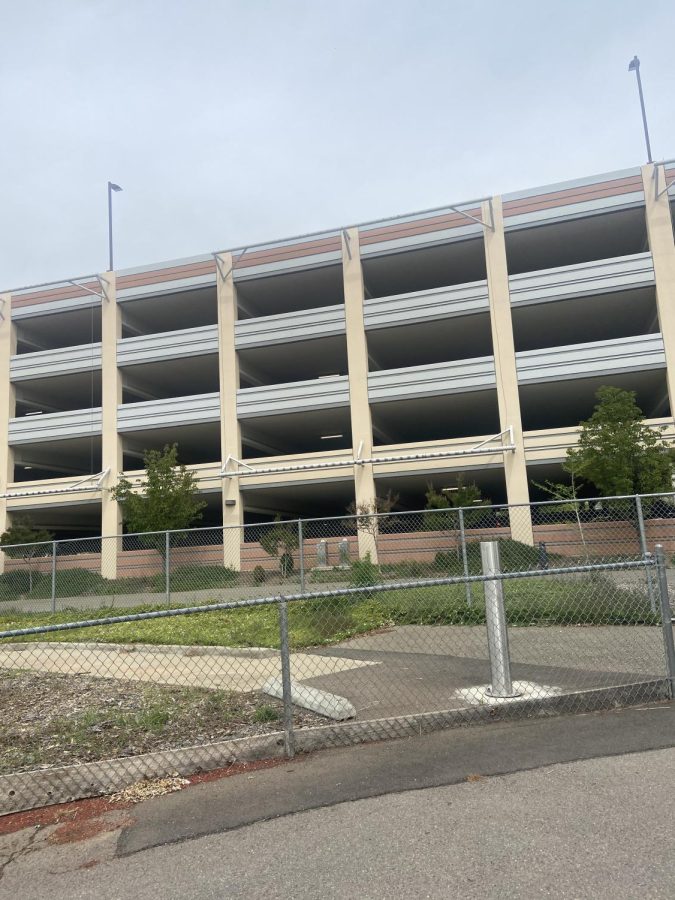With the pandemic ending ARC students should be back on campus
Zoom is affecting students mental health
Since the 2020 COVID-19 pandemic, Zoom has become the epicenter of all communication. People were cut off from the outside world and thrown into a virtual world, without face-to-face contact or interaction.
Now that scientists have developed COVID-19 vaccines and boosters to help keep many safe, and protocols have gone into effect on the American River College campus, the campus should fully re-open, for the sake of many students’ mental health.
According to Scott Crow, ARC’s public information officer, 30% of seats in classes are filled in person. That number is expected to increase to 36% for summer 2022 and 38% for fall 2022.
Although this shows progress, 70% of students have not been able to step onto campus grounds and feel what it is like to experience the college lifestyle, which includes meeting with their professors and other students.
The Los Rios Community College District serves a wide range of students and hiding behind a computer screen is not living or enjoying the college experience. Now that we have the resources, it should be a no-brainer to open up the college.
According to Crow, the spring 2022 semester’s estimated student enrollment is 27,630; this is very close to the Sacramento State enrollment. Sac State has fully returned to campus, even though they have more odds against them, such as safety in dorms, extra faculty and a bigger campus size wise; if they can reopen with similar enrollment numbers then we should be able to.
On the flip side, ARC administration can argue that they do not have the correct ventilation to sustain students in the classroom, they do not have enough resources, or they are not comfortable having that many students on campus as a whole.
Although these arguments are legit, since we have been in the pandemic the “rules” and mandates have changed an abundance of times.
In a statement posted on the Office of Gov. Gavin Newsom website, “In California, starting March 1, masks will no longer be required for unvaccinated individuals, but will be strongly recommended for all individuals in most indoor settings,” Governor Gavin Newsom said. “After March 11, in schools and child care facilities, masks will not be required but will be strongly recommended.”
Since March 11, masks and other protocols are not a barrier anymore, which makes it even easier for administration to open campus. There will always be new data and numbers coming out, and more boundaries to overcome, but it is imperative to accept this as our new normal. There is now an abundance of resources to keep students and faculty informed and up to date of any changes. Moreover, research shows that being on Zoom can affect students’ mental health.
“Psychologists who specialize in education research are concerned about how kids will cope psychologically with hanging loss of access to friends, teachers, and routines associated with a physical campus,” said Heather Stringer, a health and science journalist, published on the American Psychological Association website. “Research shows that the school environment is critical for fostering academic motivation and social development, and many students rely on schools for mental health care.”
Mental health and socialization are two very important factors to remember. While professors are teaching us, students are suffering on the other side, craving face-to-face interaction.
Some students are taking classes that do not offer Zoom, so they are staring at a computer screen all day long, reading and completing their assignments. This is not fair to them, because they get no sense of interaction or connection.
According to the American Psychological Association article, students need to socialize. Students deserve to be on campus and live out their college experience. College brings a foundation and helps students grow, overcome obstacles, and become better students.
In order to make a change, it is vital for students who are taking classes on campus to let their professors know how much they enjoy being on campus and being able to have an experience, and make connections. If not on campus, it is equally as important to speak up through Zoom or email to counselors and professors, so they are able to understand how Zoom is a loss of connection. If enough people speak up, then a change can come.









